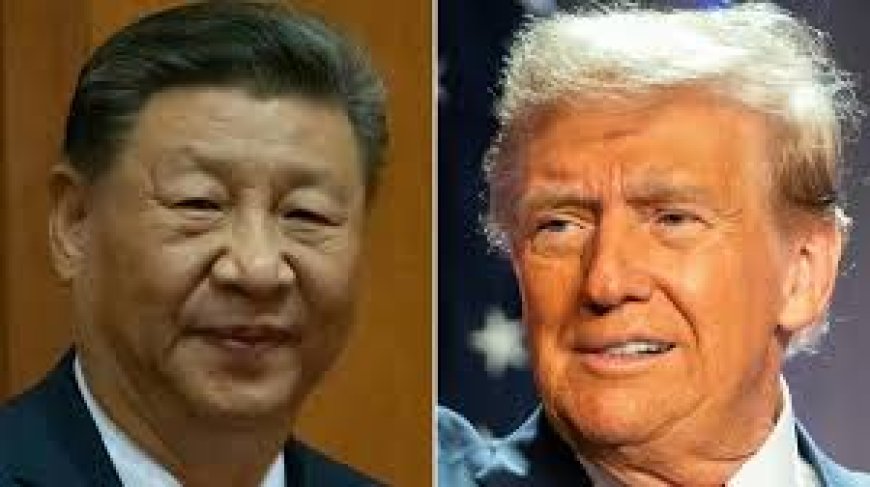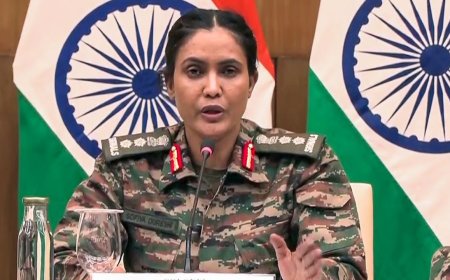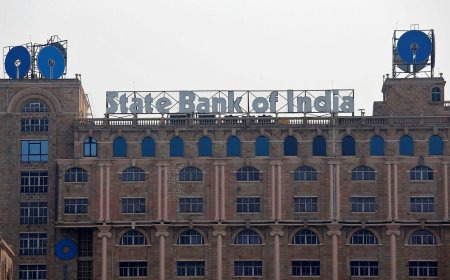China accuses Trump of 'fanning flames, pouring oil' on Israel-Iran conflict, asks citizens to leave 'as soon as possible'
As tensions rise in the Middle East, China accuses former U.S. President Donald Trump of inflaming the Israel-Iran crisis and advises Chinese citizens to evacuate immediately.

China Accuses Trump of Fueling Israel-Iran Tensions, Urges Citizens to Leave Region ‘As Soon As Possible’
Beijing, June 17 — Amid an intensifying Israel-Iran conflict that threatens broader regional instability, China has publicly condemned former U.S. President Donald Trump for “fanning the flames and pouring oil on the fire,” accusing him of exacerbating the situation through inflammatory rhetoric and political posturing. The Chinese Foreign Ministry also issued a rare emergency advisory urging all Chinese nationals in the Middle East to evacuate “as soon as possible” due to “rapidly deteriorating security conditions.”
Escalating Rhetoric Amid Regional Unrest
The remarks from Beijing follow Trump's recent social media posts and public speeches where he praised Israel’s right to “strike preemptively” and criticized the Biden administration’s “weak” stance on Iran. Trump also suggested that a more aggressive military posture by the U.S. would deter Iran’s “hostile intentions.”
China responded sharply. In an official statement, Foreign Ministry spokesperson Lin Jian said:
“Certain former American leaders are irresponsibly fanning the flames, pouring oil on a highly volatile situation. Such statements not only fail to de-escalate tensions but actively incite conflict, endangering regional peace.”
Emergency Advisory and Geopolitical Implications
The Chinese Embassy in Tehran, in coordination with consulates in Baghdad and Tel Aviv, issued travel warnings and began arranging charter flights for citizens stranded in conflict-affected areas. The advisory highlighted an “unpredictable and dangerous” environment, particularly near military zones and urban centers in Israel, Lebanon, and parts of western Iran.
This move marks one of the strongest responses from Beijing since the onset of this conflict, suggesting a recalibration of China’s traditionally cautious Middle East diplomacy.
According to geopolitical analyst Dr. Mei Yucheng of Tsinghua University:
“China is deeply invested in stability across the Middle East, especially given its Belt and Road interests and growing reliance on Iranian energy exports. The public rebuke of Trump is both a warning and a signal of shifting diplomatic engagement.”
Market Reaction and Investor Sentiment
Global markets responded nervously to the latest developments. Brent crude surged past $93 per barrel on fears of supply disruptions in the Strait of Hormuz, a critical oil transit chokepoint. Gold prices rose above $2,400 an ounce, reflecting increased demand for safe-haven assets. Meanwhile, Asian stock indices fell, with the Hang Seng Index declining 1.8% and the Shanghai Composite dropping 1.3% during early trading.
Jeffrey Hall, a senior strategist at Morgan Crest Global, said:
“The geopolitical premium is back in full swing. Traders are watching Tehran and Tel Aviv, but also Beijing’s moves. China's advisory to its citizens is not just about safety — it’s about signaling seriousness in de-escalating through diplomatic and economic levers.”
Global Diplomatic Response
The United Nations has called for an emergency Security Council meeting. Secretary-General António Guterres urged all parties to “exercise maximum restraint” and condemned attacks on civilian populations. While Washington continues to support Israel’s right to self-defense, European leaders are calling for immediate ceasefire negotiations, warning of a potential regional war.
Iran, for its part, responded to Trump’s remarks with scathing rhetoric. Foreign Minister Hossein Amir-Abdollahian accused the U.S. of “historical interference” and called Trump’s comments “proof of ongoing American sabotage in the region.”
China’s Regional Stakes and Strategic Balance
Beijing has traditionally maintained a balanced stance in the Israel-Iran dynamic, fostering trade relations with both sides. Iran is a strategic partner under China’s Belt and Road Initiative, while Israel is a significant player in tech and defense collaboration with China.
Beijing’s unusually sharp criticism of Trump reflects growing concerns that external actors are aggravating an already unstable situation. Analysts believe China is preparing to mediate or leverage its diplomatic capital to protect its investments and citizens.
Dr. Nadia Nasser, Middle East expert at Peking University, explained:
“Beijing doesn’t want this war. It disrupts energy flows, challenges its ‘Global Security Initiative,’ and risks broader superpower entanglement. Calling out Trump is part of a larger diplomatic choreography to shape the post-conflict narrative.”
Investor Outlook: Uncertainty Ahead
While investors are bracing for further volatility, some see opportunity in the chaos. Defense stocks, oil futures, and gold miners have seen upticks. However, the broader sentiment remains cautious.
Wang Zhi, portfolio manager at Hangzhou Capital, said:
“In the short term, this is a risk-off environment. China’s actions suggest they believe escalation is not just likely — it’s imminent. Investors should watch for more diplomatic messaging from Beijing and Washington before repositioning.”
China’s public denunciation of Donald Trump over the Israel-Iran conflict marks a significant rhetorical escalation that mirrors the seriousness with which Beijing views the unfolding crisis. As Beijing urges its citizens to leave the region and recalibrates its diplomatic engagement, the world watches with bated breath, hoping cooler heads prevail before the region spirals into a wider war.
In the meantime, markets remain fragile, governments are recalibrating, and citizens — including those from China — are being urged to get out while they still can.
What's Your Reaction?
 Like
0
Like
0
 Dislike
0
Dislike
0
 Love
0
Love
0
 Funny
0
Funny
0
 Angry
0
Angry
0
 Sad
0
Sad
0
 Wow
0
Wow
0












































































